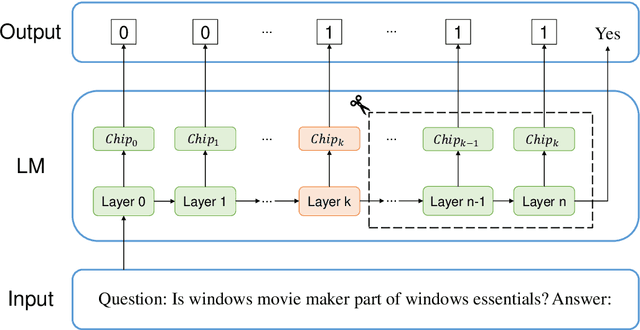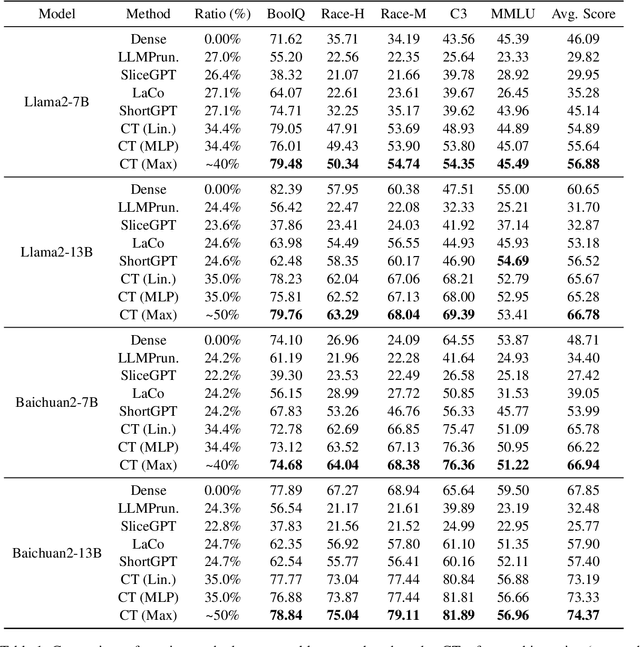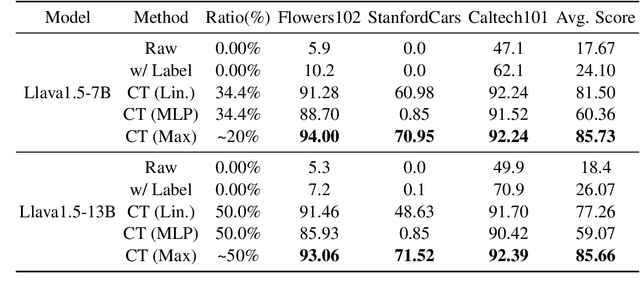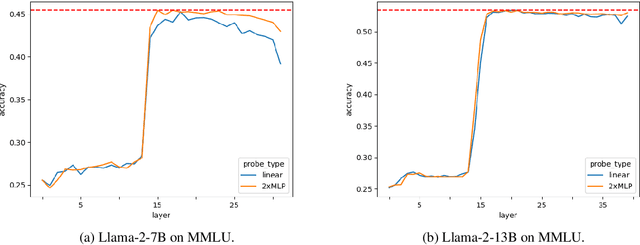Chip-Tuning: Classify Before Language Models Say
Paper and Code
Oct 09, 2024



The rapid development in the performance of large language models (LLMs) is accompanied by the escalation of model size, leading to the increasing cost of model training and inference. Previous research has discovered that certain layers in LLMs exhibit redundancy, and removing these layers brings only marginal loss in model performance. In this paper, we adopt the probing technique to explain the layer redundancy in LLMs and demonstrate that language models can be effectively pruned with probing classifiers. We propose chip-tuning, a simple and effective structured pruning framework specialized for classification problems. Chip-tuning attaches tiny probing classifiers named chips to different layers of LLMs, and trains chips with the backbone model frozen. After selecting a chip for classification, all layers subsequent to the attached layer could be removed with marginal performance loss. Experimental results on various LLMs and datasets demonstrate that chip-tuning significantly outperforms previous state-of-the-art baselines in both accuracy and pruning ratio, achieving a pruning ratio of up to 50%. We also find that chip-tuning could be applied on multimodal models, and could be combined with model finetuning, proving its excellent compatibility.
 Add to Chrome
Add to Chrome Add to Firefox
Add to Firefox Add to Edge
Add to Edge